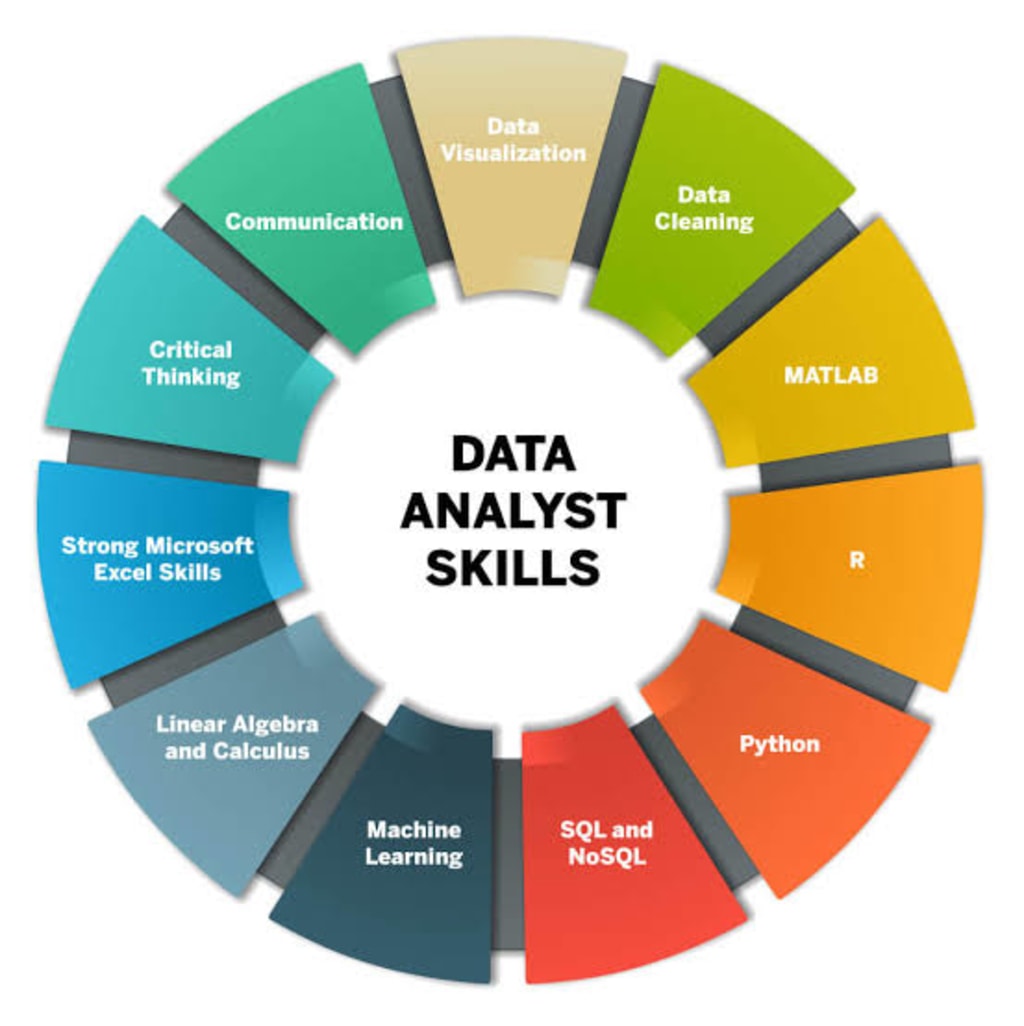
Step-by-Step Guide to Becoming a Data Analyst and Launching Your Career
Introduction :
In today's data-driven world, the demand for skilled data analysts is growing rapidly. Data analysts play a crucial role in extracting insights and making informed business decisions based on data. If you're interested in pursuing a career as a data analyst but don't know where to start, this comprehensive guide will walk you through the process step-by-step. From acquiring the necessary skills to finding job opportunities and even exploring ways to monetize your expertise, this article covers it all. Let's dive in!
Table of Contents:
- What is a Data Analyst?
- Skills Required to Become a Data Analyst
- Getting Started: Free Online Courses
- Building a Strong Foundation: Data Analysis Tools
- Practical Experience: Data Analysis Projects
- Creating a Stellar Data Analyst Resume
- Navigating the Job Search
- Acing the Data Analyst Job Interview
- Monetizing Your Data Analyst Skills
- Conclusion
1.What is a Data Analyst?
A data analyst is a professional who collects, analyzes, and interprets complex data to uncover patterns, trends, and insights. They use various statistical and analytical techniques to extract meaningful information that can help businesses make informed decisions. Data analysts work with large datasets, manipulate data, and present findings in a clear and concise manner.
2.Skills Required to Become a Data Analyst
To become a successful data analyst, you need a combination of technical and soft skills. Here are some essential skills you should focus on developing:
Proficiency in programming languages like Python or R
Knowledge of data analysis and visualization tools such as SQL, Excel, and Tableau
Statistical analysis and modeling techniques
Strong problem-solving and critical-thinking abilities
Excellent communication and presentation skills
Attention to detail and accuracy
3.Getting Started: Free Online Courses
The beauty of becoming a data analyst is that there are numerous free online resources available to help you gain the necessary knowledge and skills. Here are some popular platforms offering data analytics courses:
Coursera: Offers a range of data analysis courses from top universities and institutions.
edX: Provides access to data science and analytics courses created by renowned universities.
Khan Academy: Offers beginner-friendly courses covering various data analysis concepts.
DataCamp: Focuses specifically on data science and offers interactive coding exercises.
4.Building a Strong Foundation: Data Analysis Tools
As a data analyst, you'll be working with a variety of tools to manipulate and analyze data. Some essential tools to become familiar with include:
Excel: Master functions, formulas, and pivot tables for data manipulation and analysis.
SQL: Learn Structured Query Language to extract, transform, and analyze data from databases.
Python or R: Acquire programming skills in one or both of these languages for data manipulation and statistical analysis.
Tableau or Power BI: Gain expertise in data visualization tools to create insightful reports and dashboards.
5.Practical Experience: Data Analysis Projects
Hands-on experience is crucial for becoming a proficient data analyst. Undertaking personal data analysis projects will help you apply your skills and build a portfolio. Here's how you can get practical experience:
Find datasets on platforms like Kaggle or UCI Machine Learning Repository.
Identify a problem or question to explore and define your project's scope.
Clean and preprocess the data to ensure its quality.
Apply appropriate data analysis techniques and visualizations to derive insights.
Document your process and present your findings effectively.
6.Creating a Stellar Data Analyst Resume
Crafting an impressive data analyst resume will increase your chances of landing a job. Consider the following tips:
Highlight your technical skills, such as programming languages, data analysis tools, and statistical techniques.
Showcase your experience with data analysis projects, internships, or relevant work experience.
Emphasize your ability to communicate complex findings to both technical and non-technical audiences.
Quantify your achievements with measurable results, such as improved business processes or cost savings.
7.Navigating the Job Search
To find data analyst job opportunities, follow these strategies:
Search job portals like LinkedIn, Indeed, or Glassdoor using relevant keywords.
Network with professionals in the field through industry events or online platforms like LinkedIn groups.
Reach out to companies directly, even if they don't have open positions advertised.
Leverage your personal projects and portfolio to demonstrate your skills and initiative.
8.Acing the Data Analyst Job Interview
Preparing for data analyst job interviews requires solid knowledge and effective communication. Consider these tips:
Review key data analysis concepts, statistical techniques, and algorithms.
Practice answering behavioral and technical interview questions.
Showcase your problem-solving skills by solving data analysis problems or case studies.
Be prepared to explain your approach and methodology for previous projects.
9.Monetizing Your Data Analyst Skills
Apart from traditional employment, data analysts have several ways to monetize their skills:
Freelancing: Offer your services on freelance platforms like Upwork or Freelancer.
Consulting: Provide data analysis and insights to businesses on a project basis.
Training and Education: Conduct workshops or create online courses to teach others.
Blogging and Content Creation: Share your knowledge and expertise through blog articles or YouTube videos.
10.Conclusion
Becoming a data analyst requires dedication, continuous learning, and practical experience. By following this step-by-step guide, you can acquire the necessary skills, build a strong resume, navigate the job market, and even explore ways to monetize your expertise. Remember, persistence and a passion for data analysis are key to unlocking a rewarding career in this thriving field. Good luck on your journey!





Comments
There are no comments for this story
Be the first to respond and start the conversation.